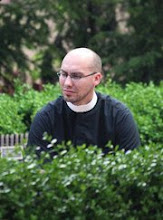Hope for Today

I need your help. Did any of you happen to catch the interview with Obama and McCain that aired last night on CSPAN? I caught a small sliver of it while I was flipping the channel. The moderator asked each candidate about their perspective on the faith question. I didn’t hear enough of Obama’s to make much of a comment, only that he talked quite a bit about “the least of these,” “clothing the naked,” “feeding the hungry,” etc. When he was finished, there was minimal response from the congregation.
What I’d really like your help with is understanding McCain’s response. McCain began by reminding us of his military service and the time he spent as a POW. He talked about how he was tortured and some of the methods used to torture them. Then he told the story of how one night the “gun guard” came in a loosened McCain’s ropes at the beginning of his shift, and retightened them at the end of his shift. Several weeks later, it was Christmas, McCain remembered. At Christmas, the POWs were permitted a few minutes outside alone. During McCain’s free time, that same guard came out, looked him in the eye, drew a cross in the dust with his boot, looked at McCain and then erased the cross and walked away. “At that moment,” McCain said, “we were just two Christians worshipping the same God.”
The crowd erupted.
I used to think a lot of my crazy ideas were just idealism. I used to think that I would outgrow my crazy notions once I got out of the ivory tower of academia. Instead, I find that I don’t feel so crazy. Instead, I find those beliefs more important to me than ever. Perhaps I am just clinging to a place and time that was special for me. So how exactly can two people go from maiming, torturing and killing one another one minute, to being just two Christians worshipping the same God the next minute, to trying to maim, torture and kill one another the next minute? That does sound crazy - doesn't it? Perhaps I am learning the gospel is crazy. Perhaps I am learning the gospel is idealistic. Gospel is supposed to be good news isn’t it? The angels came proclaiming peace didn’t they? In a world that seems to be sucked deeper and deeper every day into the bottomless pit of depression and despair, the church has a much greater opportunity to bear good news! And yet we continue to hear voices like McCain continually tell us it is not possible.
 We are stuck with the reality of the evil. We are hopelessly captive to the evil in the world. I happen to think he is wrong. I happen to think grace changes more than just my heart. I happen to think Jesus really meant it when he told us to pray “thy kingdom come.” I happen to think it is not an eschatological hope, but a hope for today! Lord knows we need a little hope. Come, Lord Jesus. Come.
We are stuck with the reality of the evil. We are hopelessly captive to the evil in the world. I happen to think he is wrong. I happen to think grace changes more than just my heart. I happen to think Jesus really meant it when he told us to pray “thy kingdom come.” I happen to think it is not an eschatological hope, but a hope for today! Lord knows we need a little hope. Come, Lord Jesus. Come.


